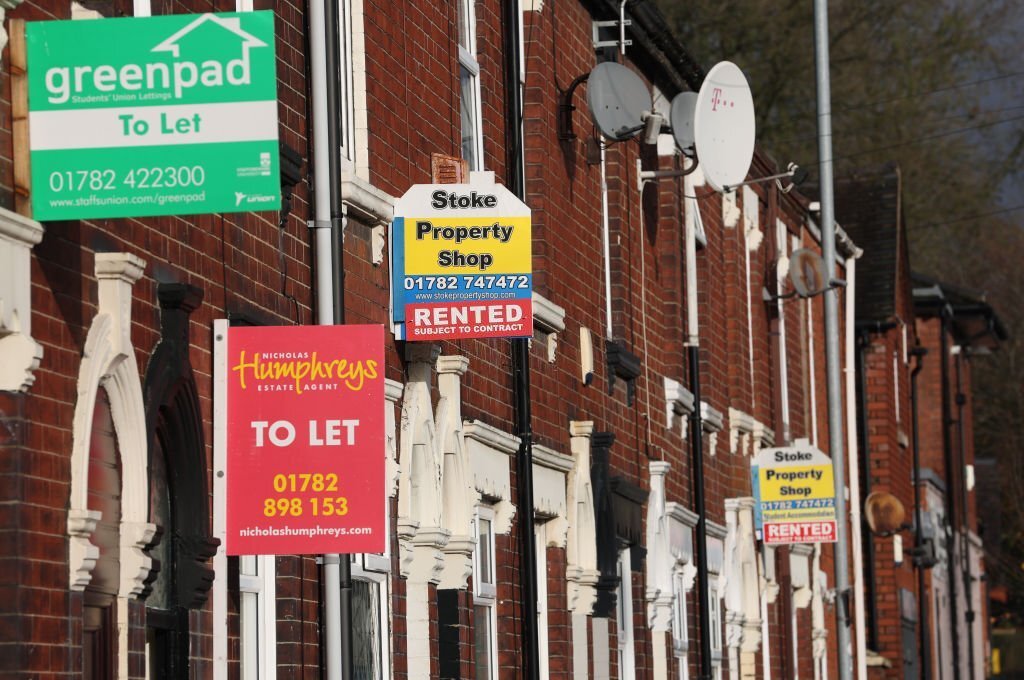The Bank of England’s recent decision to raise interest rates has once again ignited a storm in the already volatile UK housing market. With housing prices reaching astronomical heights and affordable options becoming increasingly scarce, this move by the central bank has sent shockwaves through both potential homeowners and current property owners alike. As the country grapples with economic uncertainty due to Brexit and a global pandemic, this decision seems ill-timed and potentially detrimental to an already fragile housing market. In this article, we delve into the repercussions of the interest rate hike on housing prices in the UK, questioning whether this move truly benefits anyone but those at the top of the property ladder.
The Surprising Factors Driving the Soaring UK Housing Prices
Covid-19 reduced the Bank of England’s base interest rate to 0.1% until 2021 in order to lessen economic consequences. A worsening financial situation and the Ukraine conflict have led to rising interest rates since 2022. This development has had a detrimental impact on housing prices in the UK, warranting a critical assessment.
The Surprising Factors Influencing UK Mortgage Rates Today
Monetary Policy Committee recently increased interest rates to 5%, as expected. This adjustment means several hundred pounds more in mortgage payments for millions of British people.
Heightened Inflation Concerns
To control inflation, the Bank of England raised borrowing costs from 2 to 8.7. Among Western European countries, the UK is the only one experiencing elevated inflation. The rise in inflation index from 2 to 8.7 has forced the Bank of England to raise borrowing costs. UK is the only Western European country with elevated inflation, setting it apart from the rest. This situation is particularly concerning when considering housing prices and interest rates.
Reduced Mortgage Contract Diversity
Mortgage contracts are being reduced by many English banks due to concerns about interest rate changes. The two main types of mortgage contracts commonly offered are variable and fixed. Banks usually charge a lower interest rate for variable contracts than fixed contracts as they pose less risk for them. Conversely, fixed contracts involve a set interest rate for a set period, usually two years.
Challenges Faced by British Mortgage Holders
65.1% of British households own their homes, and 37.5% have mortgages and allocate part of their income to repayments. Disturbingly, recent reports from The Guardian suggest that 700,000 British households could not meet their mortgage payments in the past month alone.
Financial Struggles and Coping Mechanisms
In England, more than 2 million people failed to pay rent, loan instalments, or credit card bills. Consequently, people have resorted to various coping measures, including reducing food purchases, selling assets, borrowing money, or utilizing their savings.
Interest Rate Increase as the Inflation-Curbing Measure
British Prime Minister Rishi Sunak has supported the Bank of England’s decision to increase interest rates, considering it the sole method to curb inflation. During a recent interview, he dismissed speculation about potential government subsidies to ease rising mortgage payments.
The Shrinking UK Economy
The International Monetary Fund (IMF) recently evaluated the UK’s economic situation and concluded it is worse than other major global economies. Contrary to the government’s claims, the IMF estimates that the UK economy will shrink by 0.6% in 2023. Further, the IMF predicts only the British economy will contract under sanctions in the next year (2024).
Contrasting Views on the UK Economy
While British officials insist that the International Monetary Fund’s forecast has not always been accurate and that the country’s economy will perform better, the Organization for Economic Co-operation and Development (OECD) recently released a similar report. A 0.4% decline in GDP and a mere 0.2% increase in 2024 are predicted by the OECD. This projection places the UK’s economic performance among the worst in the G20 countries, only ahead of Russia and Sweden.
Challenges Faced by First-Time Homebuyers
According to John Ennis, Chief Executive Officer of Chesterton, first-time homebuyers in the UK face difficulties in the housing market. Those with limited deposits have fewer opportunities on the market due to the high concentration of international investors and cash buyers.
Affordability Issues with Higher-Rate Home Loans
Millions of homeowners who must refinance their mortgages after their contracts expire face higher loan costs. Bank of England data indicates that approximately 430,000 households require refinancing this year. Concerns regarding mortgage arrears have intensified, as stated by Andrew Wishart, senior property economist at consultancy Capital Economics.
Impact of Mortgage Cost Reduction on UK Housing Market
April’s approvals dropped to 48,690, which was 26% lower than in the same period in 2019. Various indicators suggest a decline in UK housing prices, with a Nationwide report from May reporting a 3.4% annual decrease, marking the most substantial drop since 2009. Capital Economics predicts a further 8% decline in housing prices in the UK by mid-2024, with recent changes in mortgage rates making this scenario more likely.
Decrease in UK Mortgage Transactions
With the Bank of England’s interest rate hike on the horizon, mortgage-related costs have surged in recent days. This ongoing trend of interest rate increases aims to curb inflation. The monthly payments for more than a quarter of UK homeowners with fixed-rate mortgages are expected to rise sharply. Fixed-rate mortgage rates have risen in the UK, resulting in a significant decline in mortgage transactions.
Brexit and its Impact on the UK Economic Crisis
The UK economy is experiencing one of its most challenging periods in the last 50 years, compounded by successive crises. The increase in mortgage costs has further dampened the UK housing market. In the face of prolonged uncertainty, the country envisions itself as a dynamic and free-market hub.

